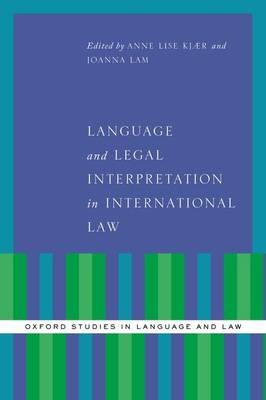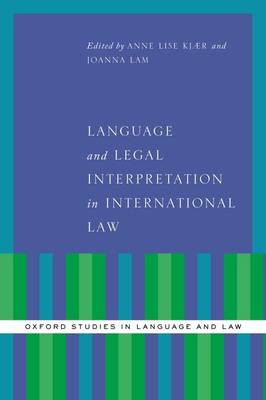
- Retrait gratuit dans votre magasin Club
- 7.000.000 titres dans notre catalogue
- Payer en toute sécurité
- Toujours un magasin près de chez vous
- Retrait gratuit dans votre magasin Club
- 7.000.0000 titres dans notre catalogue
- Payer en toute sécurité
- Toujours un magasin près de chez vous
Language and Legal Interpretation in International Law
113,45 €
+ 226 points
Description
International law is usually communicated in more than one language and reflects common norms that lawyers and adjudicators across national legal cultures agree on and develop together. As a result, the negotiation of the wording and meaning of international legislative texts is an integral part of legal interpretation in international law. This book sheds light on that essential interpretation process. Language and Legal Interpretation in International Law treats the subject from the perspective of recent legal and linguistic theories of meaning. Anne Lise Kjær and Joanna Lam bring together internationally renowned experts to provide strong theoretical and practical foundations for the study of legal interpretation in such fields as human rights law, international trade, investment and commercial law, EU law, and international criminal law. The volume explains how the positivist tradition--in which interpretation is understood as an automatic process by which judges simply apply the text of legislative instruments to specific fact situations--cannot be upheld in an era of pragmatic and cognitive meaning theories. Those theories instead focus on the context of interpretation and on the interpreter as a co-producer of meaning. Through a collection of thoroughly researched and timely essays, this book explores the linguistically and culturally diversified world of meaning-making in international law.
Spécifications
Parties prenantes
- Editeur:
Contenu
- Nombre de pages :
- 360
- Langue:
- Anglais
- Collection :
Caractéristiques
- EAN:
- 9780190855208
- Date de parution :
- 22-03-22
- Format:
- Livre relié
- Format numérique:
- Genaaid
- Dimensions :
- 164 mm x 243 mm
- Poids :
- 734 g

Les avis
Nous publions uniquement les avis qui respectent les conditions requises. Consultez nos conditions pour les avis.





